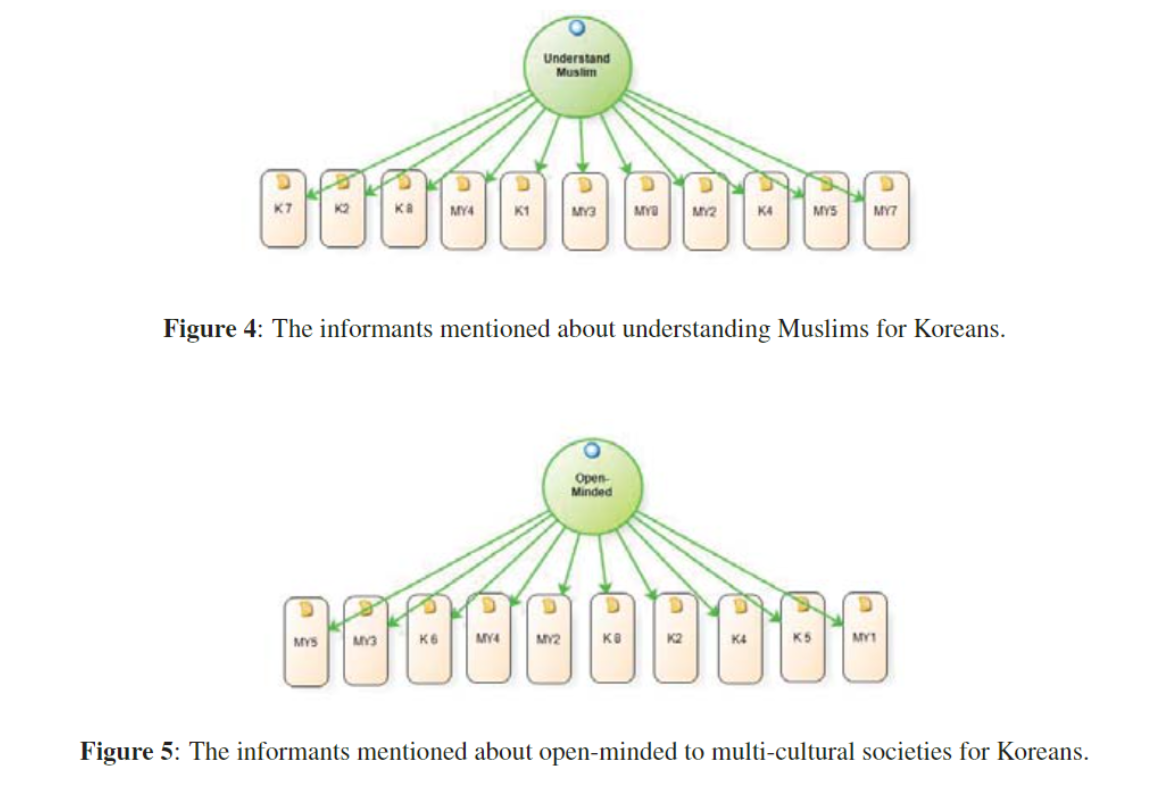Enhancing intercultural communication for Muslim tourists in South Korea.
Main Article Content
Abstract
This paper aims to highlight the influence of intercultural communication on tourism of Muslim tourists from the perspectives of Malaysian and South Korean scholars. The informants of this study were eight Malaysian and eight South Korean scholars who conduct research and teach in the fields of communication, tourism, or intercultural studies. The data were thematically analyzed using NVivo software. The paper included that to improve intercultural communication, the South Korean informants should be open to multiculturalism and Muslim values, and in the meantime, Muslim tourists should also be open to understand multiculturalism in general, Korean culture and society in particular. This study provides profound understanding for the improvement of intercultural communication in South Korea for international Muslim tourists and of its effectiveness in practical events. This study obtained information from scholars expertizing in the fields of communication and tourism. Therefore, the findings are expected to benefit the development of intercultural communication in tourist destinations.
Article Details
References
A. Mohsin, Cross-cultural sensitivities in tourism: Potentials for conflict and understanding, Transnational Corporations Review 6 (2014) 304-310.
C. E. Albu, Intercultural communication in tourism, Cross Cultural Management Journal (2015) 7-14.
A. Yuhas, Muslim population in Europe to reach 10% by 2050,new forecast shows, The Guardian, (2015).
C. Annabi, O.O. Ibidapo-Obe, Halal certification organizations in the United Kingdom: an exploration of halal cosmetic certification, Journal of Islamic Marketing 8(1) (2017) 107-126.
W. Stephen, et. al., The acceptance of halal food in non-Muslim countries: Effects of religious identity, national identification,consumer ethnocentrism and consumer cosmopolitanism, Jour-nal of Islamic Marketing (2019).
M. M. Battour, M. M. Battor, M. Ismail, The mediating role of tourist satisfaction: A study of Muslim tourists in Malaysia,Journal of Travel & Tourism Marketing 29 (2012) 279-297.
J. G. Choi, T. Tkachenko, S. Sil, On the destination image of Korea by Russian tourists, Tourism Management 32 (2011)193-194.
L. Zhou, More than just “Hello” and “Nihao”: Exploring bars and intercultural communication in a touristic town, Yangshuo, China, (2011).
G. M. Chen, W. J. Starosta, The development and validation of the intercultural communication sensitivity scale, Human Communication Research 3 (2000) 1-15.
A. Hassani, S. Moghavvemi, Muslims’ travel motivations and travel preferences: The impact of motivational factors on Islamic service, hedonic and product preferences, Journal of Islamic Marketing (2019).
A. Vargas-S`anchez, M. Moral Moral, Halal tourism: state of the art, Tourism Review 74(3) (2019) 385-399.
Y. Reisinger, International tourism: Cultures and behavior,Oxford, UK: Elsevier Inc., (2009).
KTO (2016), Imagine your Korea, Available from: http://en-glish.visitkorea.or.kr/enu/index.kto.
R.Hassan, On being religious: patterns of religious commitment in Muslim societies, The Muslim World 97(3) (2005) 437-478.
J. W. Creswell, Educational research: planning, conducting,and evaluating quantitative and qualitative research, ed: Pearson Education Limited (2014).
C. Boyce, P. Neale, Conducting in-depth interviews: A guide for designing and conducting in-depth interviews for evaluation input: Pathfinder International Watertown, MA, (2006).
S. Atran, D. L. Medin, N. Ross, The cultural mind: environmental decision making and cultural modeling within and across populations, Psychological review 112 (2005) 744.
G. Guest, A. Bunce, L. Johnson, How many interviews are enough? An experiment with data saturation and variability, Field methods 18 (2006) 59-82.
B. Baumberg, How many qualitative interviews is enough? :Expert voices and early career reflections on sampling and cases in qualitative research, S. E. Baker, R. Edwards, and M. Doidge, Eds., ed, (2012).
A. Hilal, S. S. Alabri, Using NVIVO for data analysis in qualitative research, International Interdisciplinary Journal of Education 2 (2013) 181-186.
P. Bazeley, K. Jackson, Qualitative data analysis with NVivo:Sage Publications Limited (2013).
Y.-j. Choi, Three Lear Productions in early 2000s’ Korean Cultural Landscape, Shakespeare Review 51 (2015) 155-177.
Y. H. Chong, H. Grzymala-Moszczy`nska, The Chinese perspective of Intercultural Competence Models Revisited, Journal of Intercultural Management 7 (2015) 23-41.
A. B. Breivik, 2083: A European declaration of independence, Available online in:February 10,2011, Available from:https://info.publicintelli-gence.net/AndersBehringBreivikManifesto.pdf
P. Amornwitthawat, N. Thanakasem, P. Samanasena, C. Pansawang, J. Charoensit, Guidelines for management of Kew MaePan and Pha Mon Nature Trail, Doi Inthanon National Park, Chiang Mai Province, Northern Thailand, Journal of Thai Interdisciplinary Research 13(3) (2018) 22-29


